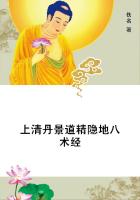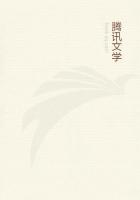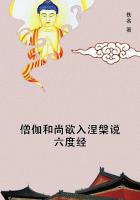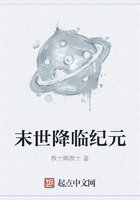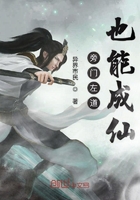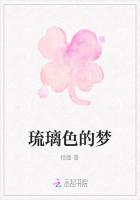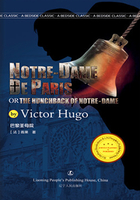BORN in the middle year of the nineteenth century, and fated unfortunately never to see its close, Guy de Maupassant was probably the most versatile and brilliant among the galaxy of novelists who enriched French literature between the years 1800and 1900. Poetry, drama, prose of short and sustained effort, and volumes of travel and description, each sparkling with the same minuteness of detail and brilliancy of style, flowed from his pen during the twelve years of his literary life.
Although his genius asserted itself in youth, he had the patience of the true artist, spending his early manhood in cutting and polishing the facets of his genius under the stern though paternal mentorship of Gustave Flaubert. Not until he had attained the age of thirty did he venture on publication, challenging criticism for the first time with a volume of poems.
Many and various have been the judgments passed upon Maupassant's work. But now that the perspective of time is lengthening, enabling us to form a more deliberate, and therefore a juster, view of his complete achievement, we are driven irresistibly to the conclusion that the force that shaped and swayed Maupassant's prose writings was the conviction that in life there could be no phase so noble or so mean, so honorable or so contemptible, so lofty or so low as to be unworthy of chronicling,--no groove of human virtue or fault, success or failure, wisdom or folly that did not possess its own peculiar psychological aspect and therefore demanded analysis.
To this analysis Maupassant brought a facile and dramatic pen, a penetration as searching as a probe, and a power of psychological vision that in its minute detail, now pathetic, now ironical, in its merciless revelation of the hidden springs of the human heart, whether of aristocrat, bourgeois, peasant, or priest, allow one to call him a Meissonier in words.
The school of romantic realism which was founded by Merimee and Balzac found its culmination in De Maupassant. He surpassed his mentor, Flaubert, in the breadth and vividness of his work, and one of the greatest of modern French critics has recorded the deliberate opinion, that of all Taine's pupils Maupassant had the greatest command of language and the most finished and incisive style. Robust in imagination and fired with natural passion, his psychological curiosity kept him true to human nature, while at the same time his mental eye, when fixed upon the most ordinary phases of human conduct, could see some new motive or aspect of things hitherto unnoticed by the careless crowd.
It has been said by casual critics that Maupassant lacked one quality indispensable to the production of truly artistic work, viz: an absolutely normal, that is, moral, point of view. The answer to this criticism is obvious. No dissector of the gamut of human pas- sion and folly in all its tones could present aught that could be called new, if ungifted with a viewpoint totally out of the ordinary plane. Cold and merciless in the use of this point de vue De Maupassant undoubtedly is, especially in such vivid depictions of love, both physical and maternal, as we find in "L'histoire d'une fille de ferme" and "La femme de Paul." But then the surgeon's scalpel never hesitates at giving pain, and pain is often the road to health and ease. Some of Maupassant's short stories are sermons more forcible than any moral dissertation could ever be.
Of De Maupassant's sustained efforts "Une Vie" may bear the palm.
This romance has the distinction of having changed Tolstoi from an adverse critic into a warm admirer of the author. To quote the Russian moralist upon the book:
" 'Une Vie' is a romance of the best type, and in my judgment the greatest that has been produced by any French writer since Victor Hugo penned 'Les Miserables.' Passing over the force and directness of the narrative, I am struck by the intensity, the grace, and the insight with which the writer treats the new aspects of human nature which he finds in the life he describes."And as if gracefully to recall a former adverse criticism, Tolstoi adds:
"I find in the book, in almost equal strength, the three cardinal qualities essential to great work, viz: moral purpose, perfect style, and absolute sincerity. . . . Maupassant is a man whose vision has penetrated the silent depths of human life, and from that vantage- ground interprets the struggle of humanity.""Bel-Ami" appeared almost two years after "Une Vie," that is to say, about 1885. Discussed and criticised as it has been, it is in reality a satire, an indignant outburst against the corruption of society which in the story enables an ex-soldier, devoid of conscience, honor, even of the commonest regard for others, to gain wealth and rank. The purport of the story is clear to those who recognize the ideas that governed Maupassant's work, and even the hasty reader or critic, on reading "Mont Oriol," which was published two years later and is based on a combination of the motifs which inspired "Une Vie" and "Bel-Ami," will reconsider former hasty judgments, and feel, too, that beneath the triumph of evil which calls forth Maupassant's satiric anger there lies the substratum on which all his work is founded, viz: the persistent, ceaseless questioning of a soul unable to reconcile or explain the contradiction between love in life and inevitable death. Who can read in "Bel-Ami" the terribly graphic description of the consumptive journalist's demise, his frantic clinging to life, and his refusal to credit the slow and merciless approach of death, without feeling that the question asked at Naishapur many centuries ago is still waiting for the solution that is always promised but never comes?


